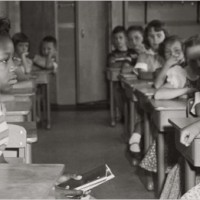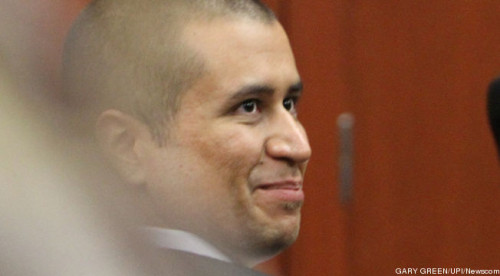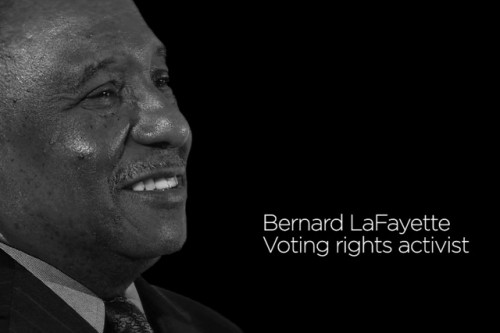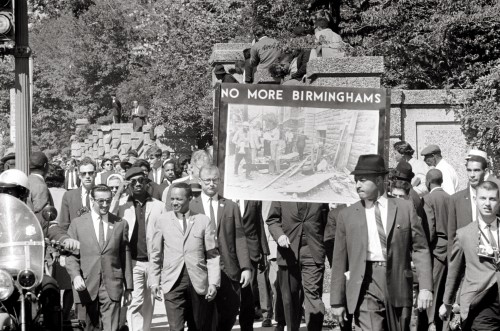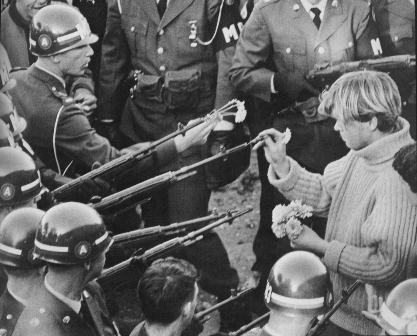Explore Our Online Exhibits
Breaking News
Worldwide Community Events
Week 4
- Sun 28
- Mon 29
- Tue 30
- Wed 1
- Thu 2
- Fri 3
- Sat 4
- Sun 5
- Mon 6
- Tue 7
- Wed 8
- Thu 9
- Fri 10
- Sat 11
- Sun 12
- Mon 13
- Tue 14
- Wed 15
- Thu 16
- Fri 17
- Sat 18
- Sun 19
- Mon 20
- Tue 21
- Wed 22
- Thu 23
- Fri 24
- Sat 25
- Sun 26
- Mon 27
- Tue 28
- Wed 29
- Thu 30
- Fri 31
- Sat 1
-
28April

New Orleans Jazz & Heritage Festival
Fair Ground Race Course, New Orleans28April














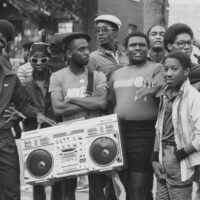
DYNAMIC RANGE: PHOTOGRAPHS BY BILL TENNESSEN
Haggerty Museum of Art28April

































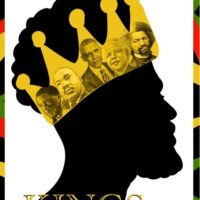 8:00 AM - 12:00 AM
8:00 AM - 12:00 AMDesere Mayo: History Through Art
Meadowridge Library28April







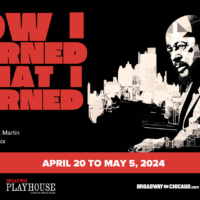 7:00 PM - 12:00 AM
7:00 PM - 12:00 AMHOW I LEARNED WHAT I LEARNED
Broadway Playhouse Chicago -
29April









New Orleans Jazz & Heritage Festival
Fair Ground Race Course, New Orleans29April















DYNAMIC RANGE: PHOTOGRAPHS BY BILL TENNESSEN
Haggerty Museum of Art29April

































 All Day
All DayDesere Mayo: History Through Art
Meadowridge Library29April







 All Day
All DayHOW I LEARNED WHAT I LEARNED
Broadway Playhouse Chicago -
30April









New Orleans Jazz & Heritage Festival
Fair Ground Race Course, New Orleans30April















DYNAMIC RANGE: PHOTOGRAPHS BY BILL TENNESSEN
Haggerty Museum of Art30April

































 All Day
All DayDesere Mayo: History Through Art
Meadowridge Library30April







 All Day
All DayHOW I LEARNED WHAT I LEARNED
Broadway Playhouse Chicago -
01May









New Orleans Jazz & Heritage Festival
Fair Ground Race Course, New Orleans01May















DYNAMIC RANGE: PHOTOGRAPHS BY BILL TENNESSEN
Haggerty Museum of Art01May

































 All Day
All DayDesere Mayo: History Through Art
Meadowridge Library01May
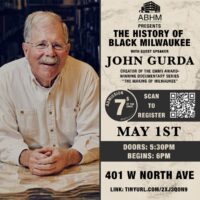 6:00 PM
6:00 PMHistory of Black Milwaukee Presented by John Gurda
ABHM in Milwaukee, WI01May







 All Day
All DayHOW I LEARNED WHAT I LEARNED
Broadway Playhouse Chicago -
02May









New Orleans Jazz & Heritage Festival
Fair Ground Race Course, New Orleans02May















DYNAMIC RANGE: PHOTOGRAPHS BY BILL TENNESSEN
Haggerty Museum of Art02May

































 All Day
All DayDesere Mayo: History Through Art
Meadowridge Library02May







 All Day
All DayHOW I LEARNED WHAT I LEARNED
Broadway Playhouse Chicago -
03May









New Orleans Jazz & Heritage Festival
Fair Ground Race Course, New Orleans03May















DYNAMIC RANGE: PHOTOGRAPHS BY BILL TENNESSEN
Haggerty Museum of Art03May

































 All Day
All DayDesere Mayo: History Through Art
Meadowridge Library03May
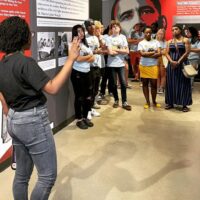
ABHM’s Jr Griot Program! Applications Due May 3rd
Virtual Event03May







 All Day
All DayHOW I LEARNED WHAT I LEARNED
Broadway Playhouse Chicago -
04May









New Orleans Jazz & Heritage Festival
Fair Ground Race Course, New Orleans04May















DYNAMIC RANGE: PHOTOGRAPHS BY BILL TENNESSEN
Haggerty Museum of Art04May

































 All Day
All DayDesere Mayo: History Through Art
Meadowridge Library04May
 9:00 AM - 2:00 PM
9:00 AM - 2:00 PMBlack Men in White Coats Youth Summit: Milwaukee
Golda Meir Upper Campus04May
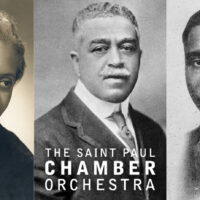 2:00 PM - 3:30 PM
2:00 PM - 3:30 PMCelebrating Black Composers Concert with the SPCO
Minnesota History Center04May







 All Day
All DayHOW I LEARNED WHAT I LEARNED
Broadway Playhouse Chicago -
05May









New Orleans Jazz & Heritage Festival
Fair Ground Race Course, New Orleans05May















DYNAMIC RANGE: PHOTOGRAPHS BY BILL TENNESSEN
Haggerty Museum of Art05May

































 All Day
All DayDesere Mayo: History Through Art
Meadowridge Library05May







 12:00 AM - 11:55 PM
12:00 AM - 11:55 PMHOW I LEARNED WHAT I LEARNED
Broadway Playhouse Chicago -
06May
















DYNAMIC RANGE: PHOTOGRAPHS BY BILL TENNESSEN
Haggerty Museum of Art06May

































 All Day
All DayDesere Mayo: History Through Art
Meadowridge Library -
07May

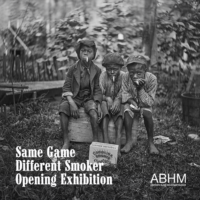 4:00 AM - 7:00 PM
4:00 AM - 7:00 PMSame Game Different Smoker Opening Exhibition
ABHM in Milwaukee, WI07May















DYNAMIC RANGE: PHOTOGRAPHS BY BILL TENNESSEN
Haggerty Museum of Art07May

































 All Day
All DayDesere Mayo: History Through Art
Meadowridge Library -
08May
















DYNAMIC RANGE: PHOTOGRAPHS BY BILL TENNESSEN
Haggerty Museum of Art08May

































 All Day
All DayDesere Mayo: History Through Art
Meadowridge Library -
09May
















DYNAMIC RANGE: PHOTOGRAPHS BY BILL TENNESSEN
Haggerty Museum of Art09May

































 All Day
All DayDesere Mayo: History Through Art
Meadowridge Library -
10May
















DYNAMIC RANGE: PHOTOGRAPHS BY BILL TENNESSEN
Haggerty Museum of Art10May

































 All Day
All DayDesere Mayo: History Through Art
Meadowridge Library -
11May
















DYNAMIC RANGE: PHOTOGRAPHS BY BILL TENNESSEN
Haggerty Museum of Art11May

































 All Day
All DayDesere Mayo: History Through Art
Meadowridge Library11May
 10:00 AM - 1:00 PM
10:00 AM - 1:00 PMBetty Brinn Children’s Museum Wonder Wagon
ABHM in Milwaukee, WI -
12May
















DYNAMIC RANGE: PHOTOGRAPHS BY BILL TENNESSEN
Haggerty Museum of Art12May

































 All Day
All DayDesere Mayo: History Through Art
Meadowridge Library -
13May


































 All Day
All DayDesere Mayo: History Through Art
Meadowridge Library -
14May


































 All Day
All DayDesere Mayo: History Through Art
Meadowridge Library -
15May


































 All Day
All DayDesere Mayo: History Through Art
Meadowridge Library -
16May


































 All Day
All DayDesere Mayo: History Through Art
Meadowridge Library -
17May


































 All Day
All DayDesere Mayo: History Through Art
Meadowridge Library -
18May


































 All Day
All DayDesere Mayo: History Through Art
Meadowridge Library -
19May


































 All Day
All DayDesere Mayo: History Through Art
Meadowridge Library -
20May


































 All Day
All DayDesere Mayo: History Through Art
Meadowridge Library20May
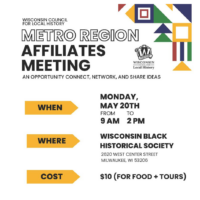 9:00 AM - 2:00 PM
9:00 AM - 2:00 PMWisconsin Historical Society’s Metropolitan Affiliates Meeting
Wisconsin Black Historical Society in MKE -
21May


































 All Day
All DayDesere Mayo: History Through Art
Meadowridge Library -
22May


































 All Day
All DayDesere Mayo: History Through Art
Meadowridge Library -
23May


































 All Day
All DayDesere Mayo: History Through Art
Meadowridge Library23May
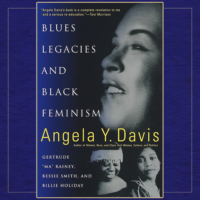 6:00 PM
6:00 PMABHM Book Club: Blues Legacies and Black Feminism by Angela Y Davis
Virtual Event -
24May


































 All Day
All DayDesere Mayo: History Through Art
Meadowridge Library -
25May


































 All Day
All DayDesere Mayo: History Through Art
Meadowridge Library25May

 8:00 AM - 12:00 AM
8:00 AM - 12:00 AMOHIO BLACK EXPO
Columbus, Ohio -
26May


































 All Day
All DayDesere Mayo: History Through Art
Meadowridge Library26May

 12:00 AM - 6:00 PM
12:00 AM - 6:00 PMOHIO BLACK EXPO
Columbus, Ohio -
27May


































 All Day
All DayDesere Mayo: History Through Art
Meadowridge Library -
28May


































 All Day
All DayDesere Mayo: History Through Art
Meadowridge Library -
29May


































 All Day
All DayDesere Mayo: History Through Art
Meadowridge Library -
30May


































 All Day
All DayDesere Mayo: History Through Art
Meadowridge Library -
31May


































 12:00 AM - 6:00 PM
12:00 AM - 6:00 PMDesere Mayo: History Through Art
Meadowridge Library -
01June

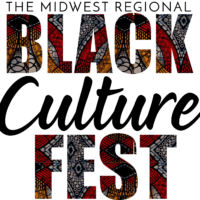 8:00 AM - 6:00 PM
8:00 AM - 6:00 PM2024 Midwest Regional Black Culture Fest
Washington Park
Share
"Resistance" is one of America's Black Holocaust Museum's four themes, which serve as pillars in our virtual museum.
People of African descent in this country have been targets of injustice for five hundred years, but they have not been simply victims. At America's Black Holocaust Virtual Museum, we remember the many ways that black people and freedom-loving white people have resisted injustice, even when doing so threatened their lives and liberty.
However, resistance can also take on a negative format when those people who have benefitted from systemic racism oppose changes that would benefit the Black community or other people of color. We are currently in the midst of cultural and political resistance that threatens equality and progress.
Many events and breaking news articles continue to showcase this theme as Black Americans break stereotypes and barriers to success.
The day after four little girls were murdered in church, a young white family man gave a speech about racism at a meeting of his Birmingham men’s club. He was to be forever shunned. This is what he said.
Read More About This TopicHarvard professor Lawrence Bobo explains how the Zimmerman verdict reflects the racism at America’s core – leading to the continual dehumanization of blacks. When cultural racism is this deeply embedded in America’s basic cultural toolkit, it need not be named or even consciously embraced to work its ill effects.
Read More About This TopicBernard Lafayette is one of the founding fathers of the Voting Rights Act. He was part of a small interracial army of men and women who presented their bodies as living sacrifices for the Act. Some lost their friends, their families, their minds — even their lives. But 50 years after their greatest triumph, their struggle is in danger of being lost.
Read More About This TopicWhy didn’t the Civil Rights Movement end racism in America? The social movements of the 1960s achieved some important changes for civil rights, women’s rights, and the environment. However, not everyone agreed with these changes. During the 1970s and 1980s, opponents started a movement of their own. Their goal was to overturn the gains of the 1960s.
Read More About This TopicThe 1960s saw an upsurge in civil rights and other organizations promoting freedom and equality for blacks and women. The 1970s brought a backlash against those movements by well-funded and well-placed organizations of the Right seeking more freedom for corporations and a return to traditional roles for women. In the 1980’s, hip-hop and punk rock music expressed anger at “The Power” through their lyrics instead of through actions to change laws.
Read More About This Topic- « Previous
- 1
- 2













